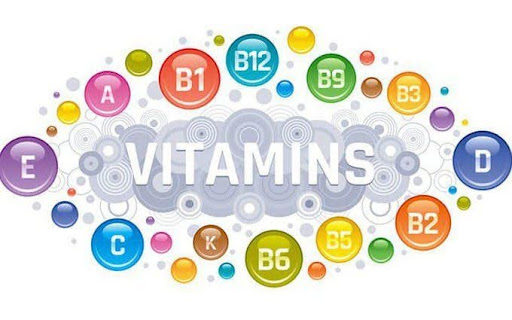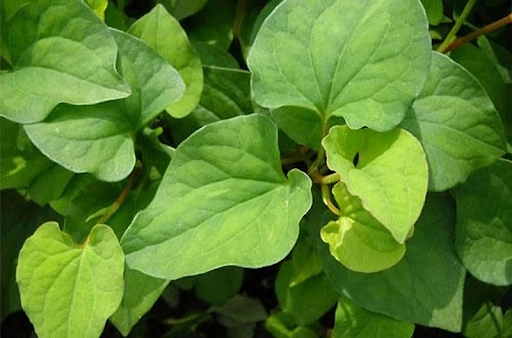Memory is a priceless gift for humans as it allows us to retain memories, knowledge, and life experiences. However, over time, especially as we enter old age, memory can decline, affecting our quality of life. So how can we enhance memory for the elderly? Let’s find out.
1. How Does Memory Change in Older Adults with Age? Causes of Change
As we age, the brain undergoes natural changes that lead to a decline in memory and other cognitive functions. Some common changes include:
- Reduced ability to learn and retain new information: Older adults often find it more difficult to learn and remember new things.
- Difficulty recalling known information: Sometimes, older adults may forget the names of familiar people, places, or events from the past.
- Decreased ability to focus and pay attention: Older adults are more easily distracted and have difficulty concentrating on tasks that require high levels of focus.
These changes can be caused by various factors, including:
- Changes in brain structure: With age, the brain shrinks and some areas important for memory, like the hippocampus, are affected.
- Reduced blood flow to the brain: Blood vessels that supply the brain can become hardened and narrowed, reducing the amount of oxygen and nutrients reaching brain cells.
- Hormonal decline: The decline in sex hormones and other hormones can affect brain function and memory.
- Chronic diseases: Some chronic diseases, such as diabetes, high blood pressure, heart disease, and depression, can increase the risk of memory decline.

2. What are some ways to enhance memory for the elderly?
Although it’s impossible to completely halt the brain’s aging process, there are numerous ways to enhance memory in older adults:
2.1. Adjusting your diet
To enhance memory in older adults, adjusting their diet plays a crucial role. While there’s no magical “cure-all” to completely prevent cognitive decline, making smart food choices can significantly support memory function. Prioritize these “superfoods”:
- Dark leafy greens: Rich sources of antioxidants and vitamins, they act as “warriors” protecting the brain from free radical attacks, the number one enemy of nerve cells.
- Berries: These tiny gems are packed with flavonoids, anti-inflammatory compounds that boost cognitive function, helping keep the mind sharp.
- Peanut butter: This familiar food contains vitamin E, a powerful “guardian” for the brain, combating the oxidative processes that damage cells.
- Whole grains: Not only rich in fiber, whole grains also provide many essential nutrients, nourishing both the body and the brain for optimal health.
- Don’t forget to include docosahexaenoic acid (DHA), a valuable omega-3 fatty acid found in salmon, herring, and some supplements. DHA is a “building block” for the brain, supporting signal transmission and improving memory.
Let food be the “medicine” that nourishes your brain, helping you maintain clarity and enjoy a fulfilling life in your golden years.
2.2. Practicing your mind through games
Boosting seniors’ memory by playing with children’s Toys? It might sound strange, but it’s entirely possible! Challenge yourself with familiar toys like Jenga, 360-degree Rubik’s Cubes, or 3D puzzles.
Twisting, turning, and maneuvering to conquer these puzzles isn’t just a fun way to pass the time; it’s also an excellent way to sharpen the mind at any age. While playing, older adults can practice the following skills:
- Memory: Remembering moves and how to solve different situations.
- Strategy: Planning and executing moves to achieve a goal.
- Spatial skills: Visualizing and manipulating objects in 3-dimensional space.
Don’t worry if the rubik’s cube seems too “daunting.” Any game that requires thought, logical reasoning, and creativity (e.g., crossword puzzles, chess, card games) can provide similar benefits. Choose a game you enjoy and spend time exploring it. You might discover a new passion while effectively exercising your brain.

2.3. Physical exercise
To boost memory and maintain brain health in older adults, get your heart pumping faster three times a week, for just 20 minutes each time. Even simple walking can yield incredible results, delivering oxygen to the brain and stimulating the growth of new cells.
According to Dr. Sam Wang, a professor of neuroscience at Princeton University, “Exercise has a positive impact two or even three times greater than any other brain-training activity.” Studies also demonstrate that exercise not only improves working memory but also enhances overall executive functions of the brain, especially in older adults.
So, lace up your shoes and start moving today! It’s one of the best ways to enhance memory in the elderly.
2.4. Stress management
While stress is an unavoidable part of life, learning to manage and minimize it plays a crucial role in protecting brain health, especially in older adults.
Research has shown that chronic stress can negatively impact memory and cognitive function. Therefore, seek out “oases of peace” amidst the hustle and bustle of life. Some simple activities to reduce stress and enhance memory for the elderly include taking walks in nature, petting a pet, or spending time meditating and practicing deep breathing.
If stress becomes overwhelming, you may also consider talking to a mental health professional to seek advice on other stress-reduction strategies that may be helpful.
2.5. Socializing with others
Studies have shown that feelings of loneliness and social isolation can increase the risk of memory and cognitive decline.
If you often feel lonely or lack social connections, take the initiative to seek connections. Spending time with family and friends or joining a group class not only brings joy but also helps keep your brain young.
Additionally, you can also try:
- Adopting a pet: The companionship and unconditional love from a furry friend can dispel feelings of loneliness and improve mental health.
- Restarting a hobby: Pursuing a passion not only brings joy but also provides an excellent opportunity to meet like-minded people.
- Joining a community or support group: This is an ideal environment to connect with new people, share experiences, and receive emotional support.
Don’t let loneliness affect your health. Take the initiative to build meaningful relationships and find joy in life.
2.6. Challenge yourself with games/video games.
Playing video games, especially on consoles like the Wii or brain-training games, might not be the first thing that comes to mind when you think about enhancing memory. However, don’t underestimate the power of these activities!
According to Dr. Reon Baird-Feldman, a neuropsychologist at Long Beach Memorial Medical Center, challenging yourself with new things, like exploring a video game, can stimulate the brain to work more actively. This novelty not only brings joy but also helps you effectively train your memory. When immersed in the world of games, you’ll have to utilize various skills, from observation and quick reflexes to strategic thinking, thereby activating areas of the brain that are rarely used in everyday life.
So, be bold and try out new games; you might discover a fun way to keep your mind sharp and active.

2.7. Learning and acquiring new knowledge
Learning and acquiring new knowledge is not only a great way to expand your understanding but also an effective method to enhance memory and combat forgetfulness, especially in older adults.
A study in the International Journal of Lifelong Education has shown that engaging in mentally stimulating activities such as:
- Educational courses and learning: Challenging yourself with new fields, acquiring knowledge, and practicing your thinking skills will help keep your brain active and engaged.
- Reading books or other printed materials: Immersing yourself in the world of books not only enriches your vocabulary but also improves your ability to focus and stimulates your imagination.
Remarkably, after four years of maintaining these activities, the study participants showed significant improvements in memory and fluency of expression. So, don’t hesitate to explore new horizons of knowledge, regardless of your age. Learning not only brings knowledge but also serves as a valuable tonic for your brain.
2.8. Other Ways to Enhance Memory
Besides the methods mentioned above, there are several other ways to help you improve your memory and reduce forgetfulness. You might consider doing the following:
- Quit Smoking: Smoking not only harms physical health but also severely affects the brain, impairing cognitive abilities and memory.
- Limit Alcohol Consumption: Excessive alcohol intake can cause brain damage and weaken memory. Therefore, practice moderation and consume alcohol responsibly.
- Explore Creativity: Engaging in artistic activities like drawing, writing, playing music, or crafting not only brings joy but also stimulates the brain and enhances memory.
- Stay Organized: Keeping frequently used items in a designated place saves you time searching and prevents “goldfish brain” moments.
- Participate in Community Activities: Volunteering not only helps you connect with others but also provides a sense of purpose and improves mental well-being.
- Take Care of Your Overall Health: A healthy diet, regular exercise, and stress management are key factors in maintaining a sharp mind and a healthy body.
By actively incorporating these methods into your daily life, you can significantly improve your memory and reduce forgetfulness, enjoying a better quality of life.
3. Points to Note
In addition to the memory-boosting measures mentioned, there are several important points to keep in mind for comprehensive brain health protection in older adults:
- Seek Timely Medical Assistance: If you or a loved one experiences serious memory problems, don’t hesitate to seek advice from healthcare professionals. Early diagnosis and treatment can help manage the situation and improve quality of life.
- Create a Safe Living Environment: Ensure that the living space of older adults is designed and arranged safely to minimize the risk of falls and head injuries, which can affect memory.
- Maintain Social Connections: Social interaction and communication not only bring joy but also help stimulate the brain, reducing the risk of depression and isolation – factors that increase the risk of memory decline.
- Ensure Good and Sufficient Sleep: Sleep plays a crucial role in consolidating memory and restoring energy to the brain. Encourage older adults to get 7-8 hours of sleep each night to maintain a clear mind.
- Supplement with Essential Micronutrients: Vitamin B12, vitamin D, omega-3s, and antioxidants are valuable “companions” for brain health. Ensure a balanced diet or use supplements if necessary, after consulting with a doctor.
4. Conclusion
Although memory decline is an inevitable part of aging, we should not surrender to it. By actively taking care of our overall health, from a balanced diet and regular exercise to stimulating the brain and supplementing with essential micronutrients, we can absolutely slow down this process and enjoy a clear-headed and happy life in our later years.
Especially in the modern context, micronutrient supplementation through intravenous therapy has emerged as an optimal solution, providing direct and rapid nutrient delivery to the brain, supporting memory enhancement in the elderly and improving cognitive function in older adults. Thoroughly research and consult with your doctor to choose the most suitable method, ensuring the best care for yourself and your loved ones.
Join the Club
Like this story? You’ll love our monthly newsletter.
Thank you for subscribing to the newsletter.
Oops. Something went wrong. Please try again later.







